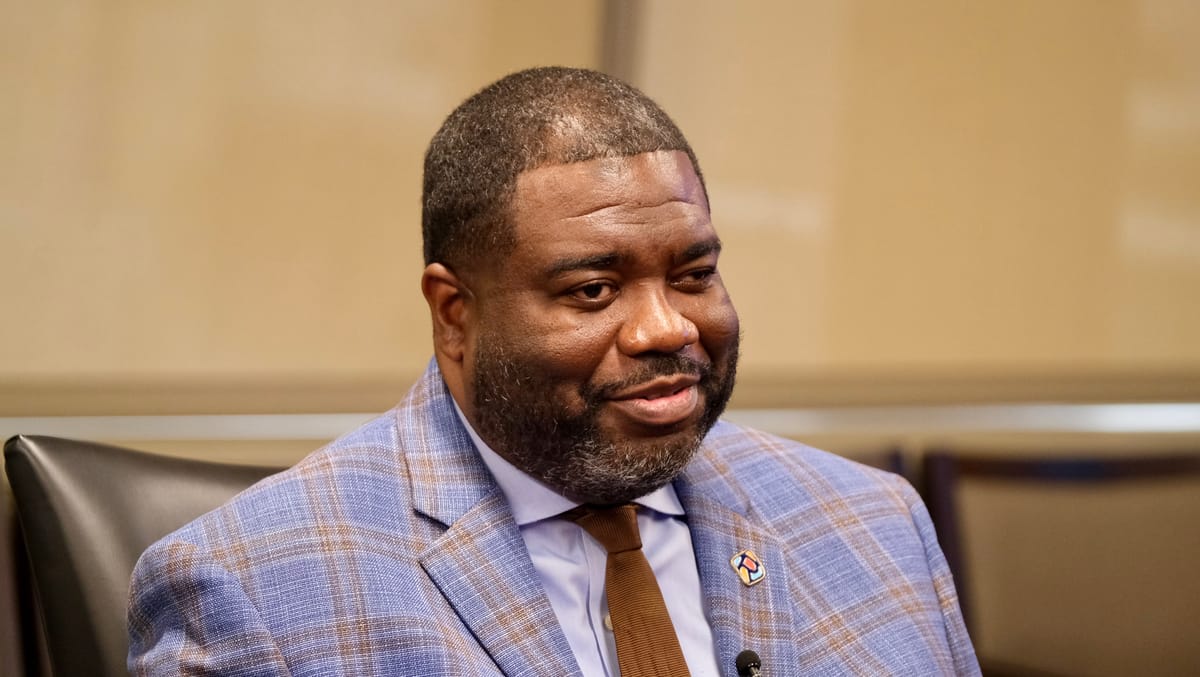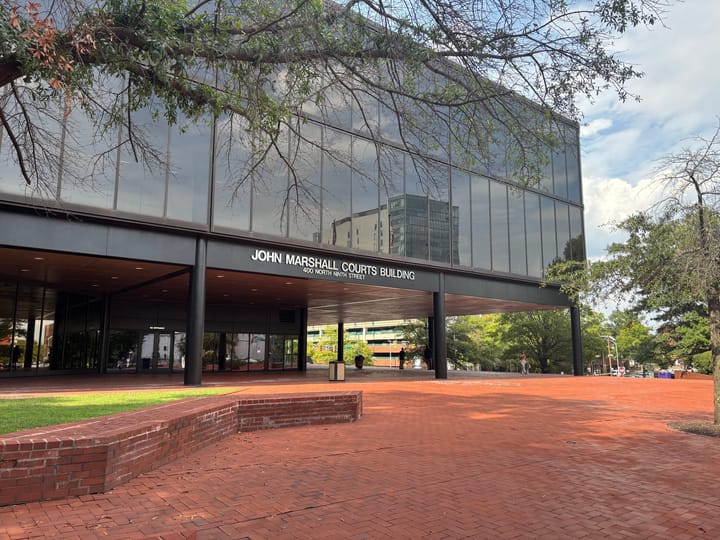Richmond could use money from delinquent property fund to pay wrongfully convicted man

A top Richmond official is recommending that the city use money generated from the sale of tax-delinquent properties to cover a roughly $5.8 million payment the city owes to wrongfully convicted man Marvin Grimm.
Chief Administrative Officer Odie Donald II made the recommendation to the City Council in a memo dated Sunday that appears to resolve the dilemma of how the city could find millions of unbudgeted dollars on short notice.
Donald identified the city’s Delinquent Tax Sale Special Fund — which holds money generated from city-initiated sales of properties with long overdue real estate taxes — as the best option for coming up with money to pay Grimm. That fund currently contains about $9.12 million, according to city officials.
The Council has not yet set a date for when it will return from its August recess to deal with the Grimm matter. But Donald’s memo lays out a plan for what policymakers could do whenever that meeting happens.
Donald said the administration “strongly opposes” dipping into the city’s so-called rainy day fund or other reserves, because “utilizing the reserves outside of a true emergency signals weak budgetary discipline.”
“As we continue existing efforts to strengthen the city's credit rating, I strongly advise against drawing from our reserves haphazardly,” Donald wrote. “These funds are a key indicator of our financial resilience and sustainability and are closely scrutinized by rating agencies when assessing the city’s fiscal health.”
Grimm was formally exonerated in court last year after being wrongfully convicted on murder and sexual assault charges after he was linked to the 1975 death of a 3-year-old Richmond boy.
To compensate Grimm for the 45 years he spent in prison, the General Assembly passed a bill this year awarding him around $5.8 million in state restitution. A separate bill passed in the same legislative session created a new rule requiring local governments to make matching restitution payments in cases where local misconduct played a role in the wrongful incarceration.
Grimm’s legal team has argued that he falsely confessed to the crime under aggressive interrogation tactics by Richmond police, including incorrect threats that he could get a death sentence if he didn’t admit guilt.
After Grimm’s representatives tried for months to get a clear answer from Richmond officials on whether the city intended to match the $5.8 million state payment, Grimm’s attorney asked Gov. Glenn Youngkin to intervene. Last month, Youngkin sent Mayor Danny Avula a sternly worded missive telling the city to pay up or risk losing state funding.
The governor gave the city an Aug. 15 deadline, but there appears to be some flexibility on the exact timing as long as the city continues to signal it is making progress.
“The governor’s willingness to extend the deadline beyond Aug. 15 allows us to continue our work advancing restitution while complying with the law,” said city spokesperson Mira Signer.
Youngin’s office hasn’t commented on whether the Aug. 15 deadline is firm or flexible.
The Richmonder is powered by your donations. For just $9.99 a month, you can join the 1,000+ donors who are keeping quality local journalism alive in Richmond.
In his memo, Donald said the threat of losing state money would remain if the Council does not move forward with approving the payment to Grimm. While calling what happened to Grimm "unconscionable,” Donald’s memo also pushed back against the new state law and the impact it will have on Richmond and other local governments.
“It is important to note, that the legislation passed this year, while well-intentioned, also puts additional strain on an already-stretched municipal budget,” Donald wrote. “The lack of availability of these funds removes a potential source of funding potentially allocated to core services and infrastructure. Moving forward, while we are prepared to meet this obligation as required, continued partnership with state legislators will be critical as we work to educate leaders on the direct local impact of state-level decisions.”
Contact Reporter Graham Moomaw at gmoomaw@richmonder.org






